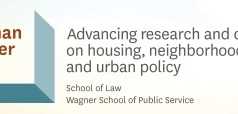Energy Department Launches New Data-Driven Initiative to Help Cities, States Advance Building Efficiency
WASHINGTON, D.C. – November 10, 2015 – (RealEstateRama) — The Energy Department today announced the launch of the SEED Collaborative, a strategic effort to help cities and states manage building energy performance data and identify opportunities for efficiency improvements in their jurisdictions. Through a three-year partnership, a select group of cities and states will receive technical assistance, participate in peer exchange, and provide input on future development of DOE’s well-established Standard Energy Efficiency Data (SEED) PlatformTM, a resource in the Better Buildings toolkit.
The open source software application fills a major market need for data-driven energy efficiency program design and implementation, allowing cities and states to combine, manage, and analyze information for large groups of buildings. Managing data from different sources across large portfolios of buildings typically can be costly and time consuming for jurisdictions with limited time and resources. Cities are spending hundreds of thousands of dollars a year and hiring new employees just to manage these efforts.
“There is an unprecedented amount of new data as cities and states, across the country, help building owners better understand opportunities for energy savings,” said Dr. Kathleen Hogan, Deputy Assistant Secretary for Energy Efficiency. “The SEED Collaborative will help cities and states leverage this data to unlock barriers and unleash innovative market solutions that will save energy and money, and grow businesses in their communities.”
The National League of Cities, the Natural Resources Defense Council, the Institute for Market Transformation, and the National Association of State Energy Officials will partner with DOE on the collaborative to help promote program goals, activities, and lessons learned. Additionally, interested companies can use the software application to develop new SEED-based products and services for cities and states, as well as utilities and building owners.
The SEED Collaborative will help create a vibrant community of first-movers that will demonstrate the importance of easily accessible data in driving building energy efficiency and help these jurisdictions save money. Cities and states chosen to participate in the initiative will be announced early next year.















